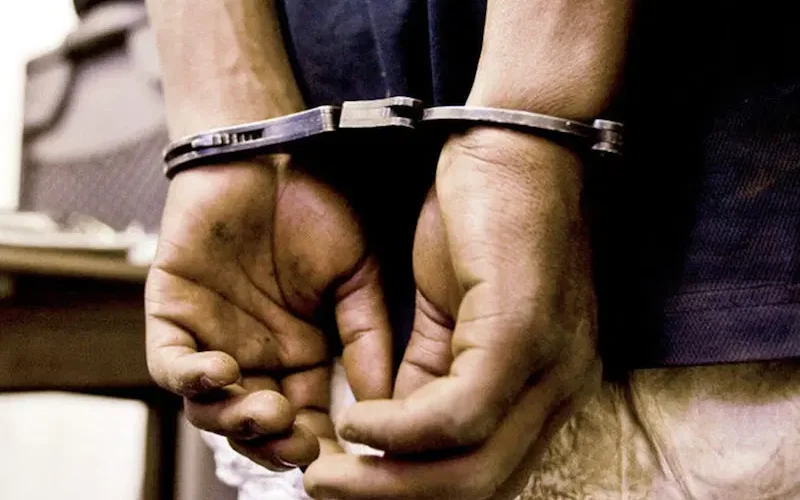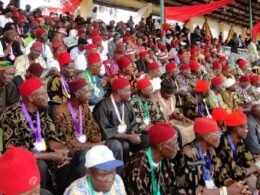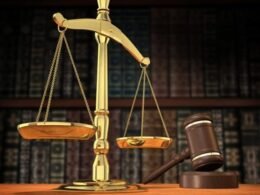Akwa Ibom INEC Sets Historic Precedent with Conviction of Two Professors for Electoral Fraud
The Independent National Electoral Commission (INEC) office in Akwa Ibom State has made a landmark contribution to the fight against electoral fraud in Nigeria, emerging as the only state electoral office among its 37 counterparts to successfully prosecute and jail two professors for election malpractice.
This bold move highlights a crucial step in the growth of Nigeria’s democracy, reaffirming the importance of accountability in the electoral process.
The Convicted Professors and Their Crimes
1. Professor Peter Ogban – Manipulation of Election Results
The first professor to be convicted was Peter Ogban, a Professor of Soil Science at the University of Uyo. He was sentenced to three years in prison for falsifying results in the 2019 Akwa Ibom North West Senatorial District election in favor of Senator Godswill Akpabio of the All Progressives Congress (APC) after Akpabio had lost to Christopher Ekpenyong of the Peoples Democratic Party (PDP).
Despite his conviction, Akpabio publicly disowned Ogban, distancing himself from the fraudulent activities.
2. Professor Ignatius Uduk – False Declaration of Election Results
On February 5, 2025, Justice Bassey Nkanang sentenced Professor Ignatius Uduk, a Professor of Human Kinetics at the University of Uyo, to prison for announcing and publishing false results during the 2019 general elections in Essien Udim State Constituency.
During his trial, Uduk attempted several tactics to evade justice, including:
- Refusing to appear in court
- Requesting the judge to recuse himself, citing alleged bias
- Feigning illness and appearing in court in a wheelchair
Despite these maneuvers, justice eventually prevailed, setting an example that electoral crimes will not go unpunished.
The Role of Mike Igini in Ensuring Justice
A key figure in ensuring these convictions was Mike Igini, the Resident Electoral Commissioner (REC) of Akwa Ibom State during the 2019 elections. A lawyer and an unyielding patriot, Igini took significant personal risks to pursue these cases, despite facing political pressure and threats to his life.
His commitment to justice and transparency has set a precedent for electoral accountability in Nigeria. It is now up to other electoral officers across the country to emulate his courage and determination in upholding the integrity of the ballot.
The Disappointment of Academia in Electoral Integrity
The conviction of these professors raises critical concerns about the failure of Nigeria’s academic elite in safeguarding democracy. The idea of involving university professors in elections was first introduced by General Ibrahim Babangida during his Transition to Civil Rule Programme in the late 1980s, when he appointed Professor Eme Awa as Chairman of the National Electoral Commission (NEC).
This model continued with Professor Humphrey Nwosu, who conducted Nigeria’s freest and fairest election on June 12, 1993. However, over time, many university professors who were entrusted with electoral responsibilities have betrayed public trust by engaging in fraudulent practices.
Among the few exceptions is Professor Nnenna Oti of the Federal University of Technology, Owerri (FUTO), who resisted pressure to manipulate results as the Returning Officer for Abia State in the 2023 general elections.
The Need for Judicial Integrity in Protecting Democracy
The judiciary remains the last hope for the survival of democracy. The bold stance taken by Akwa Ibom’s judges in convicting these electoral offenders is commendable and should serve as a blueprint for other courts across the country.
If the judiciary fails to uphold electoral laws and punish offenders, Nigeria risks entrenching a system where fraudulent leaders continue to emerge. The call to action is clear:
- Judges must uphold integrity
- Electoral offenders must face strict consequences
- INEC must remain independent and resist political pressure
The convictions in Akwa Ibom should not be isolated incidents but rather the beginning of a national movement toward accountability in Nigeria’s electoral process.
Would you like me to include more analysis on how these convictions might impact future elections?









